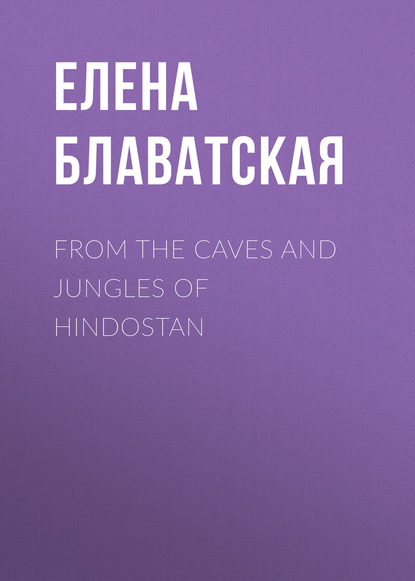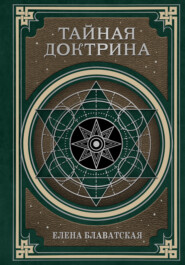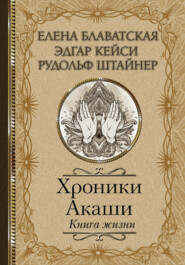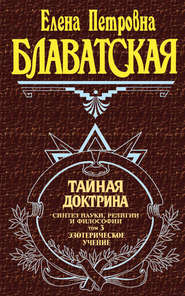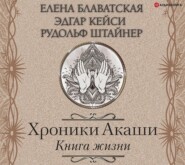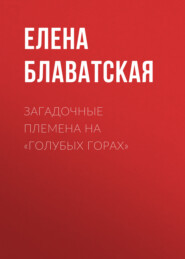По всем вопросам обращайтесь на: info@litportal.ru
(©) 2003-2024.
✖
From the Caves and Jungles of Hindostan
Настройки чтения
Размер шрифта
Высота строк
Поля
"Now, I think I begin to understand the origin of all the mythological fables of the Greek antiquity," thoughtfully said the colonel; "the syrinx of Pan, his pipe of seven reeds, the fauns, the satyrs, and the lyre of Orpheus himself. The ancient Greeks knew little about harmony; and the rhythmical declamations of their dramas, which probably never reached the pathos of the simplest of modern recitals, could hardly suggest to them the idea of the magic lyre of Orpheus. I feel strongly inclined to believe what was written by some of our great philologists: Orpheus must be an emigrant from India; his very name [greek script], or [greek script], shows that, even amongst the tawny Greeks, he was remarkably dark. This was the opinion of Lempriere and others."
"Some day this opinion may become a certainty. There is not the slightest doubt that the purest and the highest of all the musical forms of antiquity belongs to India. All our legends ascribe magic powers to music; it is a gift and a science coming straight from the gods. As a rule, we ascribe all our arts to divine revelation, but music stands at the head of everything else. The invention of the vina, a kind of lute, belongs to Narada, the son of Brahma. You will probably laugh at me if I tell you that our ancient priests, whose duty it was to sing during the sacrifices, were able to produce phenomena that could not but be considered by the ignorant as signs from supernatural powers; and this, remember, without a shadow of trickery, but simply with the help of their perfect knowledge of nature and certain combinations well known to them. The phenomena produced by the priests and the Raj-Yogis are perfectly natural for the initiate—however miraculous they may seem to the masses."
"But do you really mean that you have no faith what-ever in the spirits of the dead?" timidly asked Miss X–, who was always ill at ease in the presence of the Takur.
"With your permission, I have none."
"And… and have you no regard for mediums?"
"Still less than for the spirits, my dear lady. I do believe in the existence of many psychic diseases, and, amongst their number, in mediumism, for which we have got a queer sounding name from time immemorial. We call it Bhuta-Dak, literally a bhuta-hostelry. I sincerely pity the real mediums, and do whatever is in my power to help them. As to the charlatans, I despise them, and never lose an opportunity of unmasking them."
The witch's den near the "dead city" suddenly flashed into my mind; the fat Brahman, who played the oracle in the head of the Sivatherium, caught and rolling down the hole; the witch herself suddenly taking to her heels. And with this recollection also occurred to me what I had never thought of before: Narayan had acted under the orders of the Takur—doing his best to expose the witch and her ally.
"The unknown power which possesses the mediums (which the spiritualists believe to be spirits of the dead, while the superstitious see in it the devil, and the sceptics deceit and infamous tricks), true men of science suspect to be a natural force, which has not as yet been discovered. It is, in reality, a terrible power. Those possessed by it are generally weak people, often women and children. Your beloved spiritualists, Miss X–, only help the growth of dreadful psychic diseases, but people who know better seek to save them from this force you know nothing whatever about, and it is no use discussing this matter now. I shall only add one word: the real living spirit of a human being is as free as Brahma; and even more than this for us, for, according to our religion and our philosophy, our spirit is Brahma himself, higher than whom there is only the unknowable, the all-pervading, the omnipotent essence of Parabrahm. The living spirit of man cannot be ordered about like the spirits of the spiritualists, it cannot be made a slave of… However, it is getting so late that we had better go to bed. Let us say good-bye for tonight."
Gulab-Lal-Sing would not talk any more that night, but I have gathered from our previous conversations many a point without which the above conversation would remain obscure. The Vedantins and the followers of Shankaracharya's philosophy, in talking of themselves, often avoid using the pronoun I, and say, "this body went," "this hand took," and so on, in everything concerning the automatic actions of man. The personal pronouns are only used concerning mental and moral processes, such as, "I thought," "he desired." The body in their eyes is not the man, but only a covering to the real man.
The real interior man possesses many bodies; each of them more subtle and more pure than the preceding; and each of them bears a different name and is independent of the material body. After death, when the earthly vital principle disintegrates, together with the material body, all these interior bodies join together, and either advance on the way to Moksha, and are called Deva (divine), though it still has to pass many stadia before the final liberation, or is left on earth, to wander and to suffer in the invisible world, and, in this case, is called bhuta. But a Deva has no tangible intercourse with the living. Its only link with the earth is its posthumous affection for those it loved in its lifetime, and the power of protecting and influencing them. Love outlives every earthly feeling, and a Deva can appear to the beloved ones only in their dreams—unless it be as an illusion, which cannot last, because the body of a Deva undergoes a series of gradual changes from the moment it is freed from its earthly bonds; and, with every change, it grows more intangible, losing every time something of its objective nature. It is reborn; it lives and dies in new Lokas or spheres, which gradually become purer and more subjective. At last, having got rid of every shadow of earthly thoughts and desires, it becomes nothing from a material point of view. It is extinguished like a flame, and, having become one with Parabrahm, it lives the life of spirit, of which neither our material conception nor our language can give any idea. But the eternity of Parabrahm is not the eternity of the soul. The latter, according to a Vedanta expression, is an eternity in eternity. However holy, the life of a soul had its beginning and its end, and, consequently, no sins and no good actions can be punished or rewarded in the eternity of Parabrahm. This would be contrary to justice, disproportionate, to use an expression of Vedanta philosophy. Spirit alone lives in eternity, and has neither beginning nor end, neither limits nor central point. The Deva lives in Parabrahm, as a drop lives in the ocean, till the next regeneration of the universe from Pralaya; a periodical chaos, a disappearance of the worlds from the region of objectivity. With every new Maha-yuga (great cycle) the Deva separates from that which is eternal, attracted by existence in objective worlds, like a drop of water first drawn up by the sun, then starting again downwards, passing from one region to another, and returning at last to the dirt of our planet. Then, having dwelt there whilst a small cycle lasted, it proceeds again upwards on the other side of the circle. So it gravitates in the eternity of Parabrahm, passing from one minor eternity to another. Each of these "human," that is to say conceivable, eternities consists of 4,320,000,000 years of objective life and of as many years of subjective life in Parabrahm, altogether 8,640,000,000 years, which are enough, in the eyes of the Vedantins, to redeem any mortal sin, and also to reap the fruit of any good actions performed in such a short period as human life. The individuality of the soul, teaches the Vedanta, is not lost when plunged in Parabrahm, as is supposed by some of the European Orientalists.
Only the souls of bhutas—when the last spark of repentance and of tendency to improvement are extinguished in them—will evaporate for ever. Then their divine spirit, the undying part of them, separates from the soul and returns to its primitive source; the soul is reduced to its primordial atoms, and the monad plunges into the darkness of eternal unconsciousness. This is the only case of total destruction of personality.
Such is the Vedanta teaching concerning the spiritual man. And this is why no true Hindu believes in the disembodied souls voluntarily returning to earth, except in the case of bhutas.
Jubblepore
Leaving Malva and Indore, the quasi-independent country of Holkar, we found ourselves once more on strictly British territory. We were going to Jubblepore by railway.
This town is situated in the district of Saugor and Nerbudda; once it belonged to the Mahrattis, but, in 1817, the English army took possession of it. We stopped in the town only for a short time, being anxious to see the celebrated Marble Rocks. As it would have been a pity to lose a whole day, we hired a boat and started at 2 A.M., which gave us the double advantage of avoiding the heat, and enjoying a splendid bit of the river ten miles from the town.
The neighborhood of Jubblepore is charming; and besides, both a geologist and a mineralogist would find here the richest field for scientific researches. The geological formation of the rocks offers an infinite variety of granites; and the long chains of mountains might keep a hundred of Cuviers busy for life. The limestone caves of Jubblepore are a true ossuary of antediluvian India; they are full of skeletons of monstrous animals, now disappeared for ever.
At a considerable distance from the rest of the mountain ridges, and perfectly separate, stand the Marble Rocks, a most wonderful natural phenomenon, not very rare, though, in India. On the flattish banks of the Nerbudda, overgrown with thick bushes, you suddenly perceive a long row of strangely-shaped white cliffs.
They are there without any apparent reason, as if they were a wart on the smooth cheek of mother nature. White and pure, they are heaped up on each other as if after some plan, and look exactly like a huge paperweight from the writing-table of a Titan. We saw them when we were half-way from the town. They appeared and disappeared with the sudden capricious turnings of the river; trembling in the early morning mist like a distant, deceitful mirage of the desert. Then we lost sight of them altogether. But just before sunrise they stood out once more before our charmed eyes, floating above their reflected image in the water. As if called forth by the wand of a sorcerer, they stood there on the green bank of the Nerbudda, mirroring their virgin beauty on the calm surface of the lazy stream, and promising us a cool and welcome shelter.... And as to the preciousness of every moment of the cool hours before sunrise, it can be appreciated only by those who have lived and traveled in this fiery land.
Alas! in spite of all our precautions, and our unusually early start, our enjoyment of this cool retreat was very short-lived. Our project was to have prosaic tea amid these poetic surroundings; but as soon as we landed, the sun leaped above the horizon, and began shooting his fiery arrows at the boat, and at our unfortunate heads. Persecuting us from one place to another, he banished us, at last, even from under a huge rock hanging over the water. There was literally no place where we could seek salvation. The snow-white marble beauties became golden red, pouring fire-sparks into the river, heating the sand and blinding our eyes.
No wonder that legend supposes in them something between the abode and the incarnation of Kali, the fiercest of all the goddesses of the Hindu pantheon.
For many Yugas this goddess has been engaged in a desperate contest with her lawful husband Shiva, who, in his shape of Trikutishvara, a three-headed lingam, has dishonestly claimed the rocks and the river for his own—the very rocks and the very river over which Kali presides in person. And this is why people hear dreadful moaning, coming from under the ground, every time that the hand of an irresponsible coolie, working by Government orders in Government quarries, breaks a stone from the white bosom of the goddess. The unhappy stone-breaker hears the cry and trembles, and his heart is torn between the expectations of a dreadful punishment from the bloodthirsty goddess and the fear of his implacably exacting inspector in case he disobeys his orders.
Kali is the owner of the Marble Rocks, but she is the patroness of the ex-Thugs as well. Many a lonely traveler has shuddered on hearing this name; many a bloodless sacrifice has been offered on the marble altar of Kali. The country is full of horrible tales about the achievements of the Thugs, accomplished in the honor of this goddess. These tales are too recent and too fresh in the popular memory to become as yet mere highly-colored legends. They are mostly true, and many of them are proved by official documents of the law courts and inquest commissions.
If England ever leaves India, the perfect suppression of Thugism will be one of the good memories that will linger in the country long after her departure. Under this name was practised in India during two long centuries the craftiest and the worst kind of homicide. Only after 1840 was it discovered that its aim was simply robbery and brigandage. The falsely interpreted symbolical meaning of Kali was nothing but a pretext, otherwise there would not have been so many Mussulmans amongst her devotees. When they were caught at last, and had to answer before justice, most of these knights of the rumal—the handkerchief with which the operation of strangling was performed—proved to be Mussulmans. The most illustrious of their leaders were not Hindus, but followers of the Prophet, the celebrated Ahmed, for instance. Out of thirty-seven Thugs caught by the police there were twenty-two Mahometans. This proves perfectly clearly that their religion, having nothing in common with the Hindu gods, had nothing to do with their cruel profession; the reason and cause was robbery.
It is true though that the final initiation rite was performed in some deserted forest before an idol of Bhavani, or Kali, wearing a necklace of human skulls. Before this final initiation the candidates had to undergo a course of schooling, the most difficult part of which was a certain trick of throwing the rumal on the neck of the unsuspecting victim and strangling him, so that death might be instantaneous. In the initiation the part of the goddess was made manifest in the use of certain symbols, which are in common use amongst the Freemasons—for instance, an unsheathed dagger, a human skull, and the corpse of Hiram-Abiff, "son of the widow," brought back to life by the Grand Master of the lodge. Kali was nothing but the pretext for an imposing scenarium. Freemasonry and Thugism had many points of resemblance. The members of both recognized each other by certain signs, both had a pass-word and a jargon that no outsider could understand. The Freemason lodges receive among their members both Christians and Atheists; the Thugs used to receive the thieves and robbers of every nation without any distinction; and it is reported that amongst them there were some Portuguese and even Englishmen. The difference between the two is that the Thugs certainly were a criminal organization, whereas the Freemasons of our days do no harm, except to their own pockets.
Poor Shiva, wretched Bhavani! What a mean interpretation popular ignorance has invented for these two poetical types, so deeply philosophical and so full of knowledge of the laws of nature. Shiva, in his primitive meaning is "Happy God"; then the all-destroying, as well as the all-regenerating force of nature. The Hindu trinity is, amongst other things, an allegorical representation of the three chief elements: fire, earth and water. Brahma, Vishnu and Shiva all represent these elements by turns, in their different phases; but Shiva is much more the god of the fire than either Brahma or Vishnu: he burns and purifies; at the same time creating out of the ashes new forms, full of fresh life. Shiva-Sankarin is the destroyer or rather the scatterer; Shiva-Rakshaka is the preserver, the regenerator. He is represented with flames on his left palm, and with the wand of death and resurrection in his right hand. His worshippers wear on their foreheads his sign traced with wet ashes, the ashes being called vibhuti, or purified substance, and the sign consisting of three horizontal parallel lines between the eyebrows. The color of Shiva's skin is rosy-yellow, gradually changing into a flaming red. His neck, head and arms are covered with snakes, emblems of eternity and eternal regeneration. "As a serpent, abandoning his old slough, reappears in new skin, so man after death reappears in a younger and a purer body," say the Puranas.
In her turn, Shiva's wife Kali is the allegory of earth, fructified by the flames of the sun. Her educated worshippers say they allow themselves to believe their goddess is fond of human sacrifices, only on the strength of the fact that earth is fond of organical decomposition, which fertilizes her, and helps her to call forth new forces from the ashes of the dead. The Shivaites, when burning their dead, put an idol of Shiva at the head of the corpse; but when beginning to scatter the ashes in the elements, they invoke Bhavani, in order that the goddess may receive the purified remains, and develop in them germs of new life. But what truth could bear the coarse touch of superstitious ignorance without being disfigured!
The murdering Thugs laid their hands on this great philosophic emblem, and, having understood that the goddess loves human sacrifice, but hates useless blood-shed, they resolved to please her doubly: to kill, but never to soil their hands by the blood of their victims. The result of it was the knighthood of the rumal.
One day we visited a very aged ex-Thug. In his young days he was transported to the Andaman Islands, but, owing to his sincere repentance, and to some services he had rendered to the Government, he was afterwards pardoned. Having returned to his native village, he settled down to earn his living by weaving ropes, a profession probably suggested to him by some sweet reminiscences of the achievements of his youth. He initiated us first into the mysteries of theoretic Thugism, and then extended his hospitality by a ready offer to show us the practical side of it, if we agreed to pay for a sheep. He said he would gladly show us how easy it was to send a living being ad patres in less than three seconds; the whole secret consisting in some skillful and swift movements of the righthand finger joints.
We refused to buy the sheep for this old brigand, but we gave him some money. To show his gratitude he offered to demonstrate all the preliminary sensation of the rumal on any English or American neck that was willing. Of course, he said he would omit the final twist. But still none of us were willing; and the gratitude of the repentant criminal found issue in great volubility.
The owl is sacred to Bhavani Kali, and as soon as a band of Thugs, awaiting their victims, had been signalled by the conventional hooting, each of the travelers, let them be twenty and more, had a Thug behind his shoulders. One second more, and the rumal was on the neck of the victim, the well-trained iron fingers of the Thug tightly holding the ends of the sacred handkerchief; another second, the joints of the fingers performed their artistic twist, pressing the larynx, and the victim fell down lifeless. Not a sound, not a shriek! The Thugs worked, as swiftly as lightning. The strangled man was immediately carried to a grave prepared in some thick forest, usually under the bed of some brook or rivulet in their periodical state of drought. Every vestige of the victim disappeared. Who cared to know about him, except his own family and his very intimate friends? The inquests were especially difficult, if not impossible, thirty years ago in 1879, when there were no regular railway communications, and no regular Government system. Besides, the country is full of tigers, whose sad fate it is to be responsible for every one else's sins as well as for their own. Whoever it was who happened to disappear, be it Hindu or Mussulman, the answer was invariably the same: tigers!
The Thugs possessed a wonderfully good organization. Trained accomplices used to tramp all over India, stopping at the bazaars, those true clubs of Eastern nations, gathering information, scaring their listeners to death with tales of the Thugs, and then advising them to join this or that travelling party, who of course were Thugs playing the part of rich merchants or pilgrims. Having ensnared these wretches, they sent word to the Thugs, and got paid for the commission in proportion to the total profit.
During many long years these invisible bands, scattered all over the country, and working in parties of from ten to sixty men, enjoyed perfect freedom, but at last they were caught. The inquiries unveiled horrid and repulsive secrets: rich bankers, officiating Brahmans, Rajas on the brink of poverty, and a few English officials, all had to be brought before justice.
This deed of the East India Company truly deserves the popular gratitude which it receives.–
On our way back from the Marble Rocks we saw Muddun-Mahal, another mysterious curio; it is a house built—no one knows by whom, or with what purpose—on a huge boulder. This stone is probably some kind of relative to the cromlechs of the Celtic Druids. It shakes at the least touch, together with the house and the people who feel curious to see inside it. Of course we had this curiosity, and our noses remained safe only thanks to the Babu, Narayan and the Takur, who took as great care of us as if they had been nurses, and we their babies.
Natives of India are truly a wonderful people. However unsteady the thing may be, they are sure to walk on it, and sit on it, with the greatest comfort. They think nothing of sitting whole hours on the top of a post—maybe a little thicker than an ordinary telegraph post. They also feel perfectly safe with their toes twisted round a thin branch and their bodies resting on nothing, as if they were crows perched on a telegraph wire.
"Salam, sahib!" said I once to an ancient, naked Hindu of a low caste, seated in the above described fashion. "Are you comfortable, uncle? And are you not afraid of falling down?"
"Why should I fall?" seriously answered the "uncle," expectorating a red fountain—an unavoidable result of betel-chewing. "I do not breathe, mam-sahib!"
"What do you mean? A man cannot do without breathing!" exclaimed I, a good deal astonished by this wonderful bit of information.
"Oh yes, he can. I do not breathe just now, and so I am perfectly safe. But soon I shall have to fill up my breast again with fresh air, and then I will hold on to the post, otherwise I should fall."
After this astounding physiological information, we parted. He would not talk any more, evidently fearing to endanger his comfort. At that time, we did not receive any more explanations on the subject, but this incident was enough to disturb the scientific equanimity of our minds.
Till then, we were so naive as to fancy that only sturgeons and similar aquatic acrobats were clever enough to learn how to fill up their insides with air in order to become lighter, and to rise to the surface of the water. What is possible to a sturgeon is impossible to man, speculated we in our ignorance. So we agreed to look upon the revelation of the above described "uncle" in the light of a brag, having no other aim but to chaff the "white sahibs." In those days, we were still inexperienced, and inclined to resent this kind of information, as coming very near to mockery. But, later on, we learned that his description of the process necessary to keep up this birdlike posture was perfectly accurate. In Jubblepore we saw much greater wonders. Strolling along the river bank, we reached the so-called Fakirs' Avenue; and the Takur invited us to visit the courtyard of the pagoda. This is a sacred place, and neither Europeans nor Mussulmans are admitted inside. But Gulab-Sing said something to the chief Brahman, and we entered without hindrance.
The yard was full of devotees, and of ascetics. But our attention was especially attracted by three ancient, perfectly naked fakirs. As wrinkled as baked mushrooms, as thin as skeletons, crowned with twisted masses of white hair, they sat or rather stood in the most impossible postures, as we thought. One of them, literally leaning only on the palm of his right hand, was poised with his head downwards and his legs upwards; his body was as motionless as if he were the dry branch of a tree. Just a little above the ground his head rose in the most unnatural position, and his eyes were fixed on the glaring sun. I cannot guarantee the truthfulness of some talkative inhabitants of the town, who had joined our party, and who assured us that this fakir daily spends in this posture all the hours between noon and the sunset. But I can guarantee that not a muscle of his body moved during the hour and twenty minutes we spent amongst the fakirs. Another fakir stood on a "sacred stone of Shiva," a small stone about five inches in diameter. One of his legs was curled up under him, and the whole of his body was bent backwards into an arc; his eyes also were fixed on the sun. The palms of his hands were pressed together as if in prayer. He seemed glued to his stone. We were at a loss to imagine by what means this man came to be master of such equilibration.
The third of these wonderful people sat crossing his legs under him; but how he could sit was more than we could understand, because the thing on which he sat was a stone lingam, not higher than an ordinary street post and little wider than the "stone of Shiva," that is to say, hardly more than five or seven inches in diameter. His arms were crossed behind his back, and his nails had grown into the flesh of his shoulders.
"This one never changes his position," said one of our companions. "At least, he has not changed for the last seven years."
His usual food, or rather drink, is milk, which is brought to him once in every forty-eight hours and poured into his throat with the aid of a bamboo. Every ascetic has willing servants, who are also future fakirs, whose duty it is to attend on them; and so the disciples of this living mummy take him off his pedestal, wash him in the tank, and put him back like an inanimate object, because he can no longer stretch his limbs.
"And what if I were to push one of these fakirs?" asked I. "I daresay the least touch would upset them."
"Try!" laughingly advised the Takur. "In this state of religious trance it is easier to break a man to pieces than to remove him from his place."
To touch an ascetic in the state of trance is a sacrilege in the eyes of the Hindus; but evidently the Takur was well aware that, under certain circumstances, there may be exceptions to every Brahmanical rule. He had another aside with the chief Brahman, who followed us, darker than a thundercloud; the consultation did not last long, and after it was over Gulab-Sing declared to us that none of us was allowed to touch the fakirs, but that he personally had obtained this permission, and so was going to show us something still more astonishing.
He approached the fakir on the little stone, and, carefully holding him by his protruding ribs, he lifted him and put him on the ground. The ascetic remained as statuesque as before. Then Gulab-Sing took the stone in his hands and showed it to us, asking us, however, not to touch it for fear of offending the crowd. The stone was round, flattish, with rather an uneven surface. When laid on the ground it shook at the least touch.
"Now, you see that this pedestal is far from being steady. And also you have seen that, under the weight of the fakir, it is as immovable as if it were planted in the ground."





